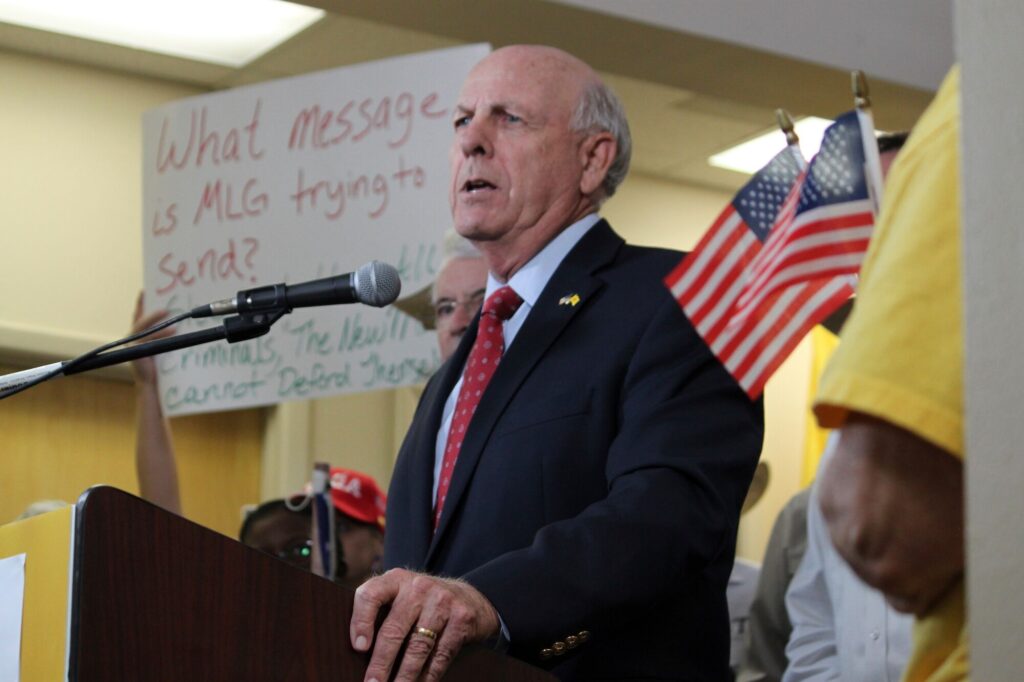Republican turns to ‘Working Girl’ in defense of PERA board modification
A debate in the Senate Tuesday on the composition of the PERA board bizarrely devolved into a competition over Wall Street movies and charges of age discrimination.
Sadly, Carly Simon was not singing “Let the River Run” as a soundtrack to the debate, which was the case in the 1988 romantic comedy-drama “Working Girl.”
Speaking about the movie’s main character, Tess McGill, played by Melanie Griffith, Sen. Jack Tate, R-Centennial, pointed to the Staten Island-raised secretary’s rise in mergers and acquisitions.
Never mind the movie was fiction, Tate highlighted Tess’s “dream of success.”
“I’m not against people like that character in the movie … If members of the opposition party want to vote against those folks, that’s fine by me,” Tate said.
So, what does a 1980s romantic comedy have to do with the makeup of a board that oversees the $47 billion PERA retirement system for state employees? A system that serves more than 547,000 members and is faced with as much as $30 billion in unfunded liability?
The answer: Wall Street.
Democrats pushed a failed amendment that would have prohibited membership on the board by anyone who had a role in the 2008 banking crisis that led to the Great Recession.
Sen. Matt Jones, D-Longmont, who sponsored the amendment to the PERA board composition bill, listed off banks like Lehman Brothers, Merrill Lynch and AIG.
Jones proposed the amendment because the Republican bill would require three appointed board trustees be experts in finance and not PERA members or retirees.
“What we’re saying here with this bill is that those are the people that should be in charge, Wall Street should be in charge, not teachers, not somebody that drives a snow plow, not a police officer … No, Wall Street should be in charge of this, and given what has happened to our country and our state as a result of that Great Recession … it boggles my mind that we’re doing this,” Jones said.
Democrats pointed to movies of their own, including “The Wolf of Wall Street” and “The Big Short,” which highlighted greed, corruption and crime on Wall Street.
Senate Bill 158 passed the Senate on an initial vote Tuesday. It still needs a final vote in the Senate before heading to the Democratic-controlled House, where the bill faces likely death.
The measure – touted by Republican Treasurer Walker Stapleton – aims at restructuring the 15-member board in an effort to bring greater accountability and performance.
It would eliminate one elected member from the state division; eliminate two elected members from the school division; and add three members appointed by the governor and confirmed by the Senate who are not PERA members or retirees and who are experts in finance.
The current board is comprised of the state treasurer, three elected members of the state division, four elected members of the school division, one elected member of the local government division, one elected member of the judicial division, two elected retirees, and three trustees appointed by the governor and confirmed by the Senate who are not PERA members or retirees. There is also one ex officio trustee from the Denver Public Schools division.
The bill would not change the inclusion of the state treasurer, the elected members from the local government and judicial divisions, or the ex officio trustee from Denver Public Schools.
One of the more controversial aspects of the bill would require at least one elected board member from both the state division and the school division to be at least 20 years from retirement in order to serve on the board.
When the bill was in committee, Stapleton upset some lawmakers by stating, “We don’t need a bunch of gray-hairs. When changes are made to PERA’s funding structure, most of the bloodletting and most of the sacrifice will be made by newer PERA members and younger PERA members who are just starting their careers.”
Sen. Lois Court, D-Denver, would not let Stapleton forget the comment.
“I was quite offended by that comment,” Court said from the Senate floor. “I thought it was ageist; I thought it was inappropriate. If people who were over middle age are not competent to make good decisions, then half of us ought not be here.”











